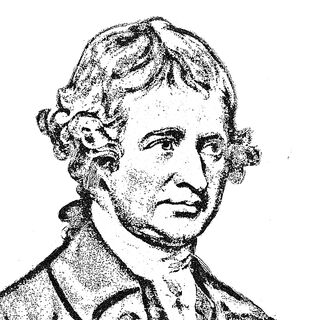Wisdom
A Liberal Psychologist Learns from Burkean Conservatives
Liberal clinical psychologists likely embrace more conservatism than they think.
Posted March 27, 2022 Reviewed by Vanessa Lancaster
Key points
- Progressive-liberal psychologists might be surprised to learn of the overlap between their work and some 'traditional' conservative principles.
- Some clinical orientations parallel conservatism in emphasizing humble change agents incorporating the client's preexisting strengths and wisdom.
- There are overlaps between positive psychology orientations (e.g., solution-focused and accelerated experiential dynamic) and conservatism.
I recently read an Atlantic Magazine essay by New York Times columnist David Brooks. He describes (what he sees as) the origins, principles, and policy guidelines of ‘traditional’ or ‘Burkean’ conservative philosophy.
Like most clinical psychologists I know, I tend to come down on the progressive-liberal end of the philosophical and political spectrum. Brook’s essay reminds me, though, of something that has occurred to me while reading other descriptions of conservatism. There is much in ‘traditional’ or ‘Burkean’ conservatism that is relevant to my work with neuro-atypical children and adolescents and their families and may be useful to other clinicians as well.
Brooks’ ‘Traditional’ or ‘Burkean’ Conservatism
Brooks begins his essay with a vivid, and for him formative, personal episode:
As a politics and crime reporter in Chicago, I often found myself around public-housing projects like Cabrini-Green and the Robert Taylor Homes, which had been built with the best of intentions but had become nightmares.
The urban planners who designed those projects thought they could improve lives by replacing ramshackle old neighborhoods with a series of neatly ordered high rises . . . (but) the planners never really consulted the residents themselves.
They disrespected the residents by turning them into unseen, passive spectators of their own lives. By the time I encountered the projects they were national symbols of urban decay.
Brooks goes on to note:
Human society is unalterably complex, Edmund Burke argued. If you try to reengineer it based on the simplistic schema of your own reason, you will unintentionally cause significant harm.
Conservatives put a lot of faith in the latent wisdom that is passed down by generations, cultures, families, and institutions...:
We are formed within families, churches, communities, schools, and professional societies. Each institution has its own stories, standards of excellence, ways of doing things
Each community must improvise its own set of solutions to intricate human concerns.
True conservatism’s great virtue is that it teaches us to be humble about what we think we know
'The world is often wiser than any philosopher,' the journalist Walter Bagehot wrote in the mid-19th century.

Brooks sees “traditional” or “true” conservativism as originating centuries ago in the writings of Edmund Burke, David Hume, and Adam Smith.
He sees their version of conservatism (along with Lockean liberalism) as a response to the European wars of religion of the 16th, 17th, and early 18th centuries, a time when “The urgent task was this: how to construct a society that wouldn’t devolve into bitter polarization and tribal bloodbaths.”
Brooks sees what he identifies as Burke’s, Hume’s, and Smith’s version of conservatism as being “the near opposite” of the thinking and policy recommendations promoted by many of today’s prominent, purportedly (though not really) conservative politicians and media figures.
Brooks writes that “To be conservative on racial matters is a moral crime.” He argues against a focus on “self-interest and economic growth.” He warns about causes held together by fear and hatred of “the Other.” Brooks claims that “I alone can fix it” is “perhaps the least conservative sentence it is possible to utter.”
Parallels to Solution Focused and Accelerated Experiential Dynamic Psychotherapies
Brooks' critique of today’s ascendant version of conservatism is not my focus here. I want to focus instead on what Brooks identifies as “traditional” or “true” conservatism’s emphases on the complexity of people and their social environments, the risks of well-intentioned change agents inadvertently harming rather than helping, and especially the importance of change agents being humble and appreciating and incorporating the strengths and wisdom of the people and communities that are seen as needing to change.
I find it interesting, for example, that the collaborative and strength-based principles of some positive psychology or 'third-wave' orientations such as solution focus therapy (SFT) and accelerated experiential dynamic psychotherapy (AEDP) can be seen as having significant overlap with the principles of Brooks’ version of Burkean conservatism. SFT and AEDP, like Burkean conservatism, call for “a modest attitude on the part of the professional” and “privileging” people’s strengths and competencies.
SF therapists are encouraged to “lead from behind” and take “a position of not knowing” and view the client as the expert – even if the client does not know it yet. SF therapists direct clients’ attention to times the problem occurs and the times clients experience exceptions to the problem. They invite clients to talk about and learn from their success stories and areas of competence (e.g., work, sports, hobbies) rather than failures and limitations, asking: “How did you do that?” “How did you learn to do that?” “What does that say about you?”
AEDP, like (and influenced by) SFT, encourages therapists to adopt a position of not knowing and to “pay attention to the distinctive phenomenology of each patient," to use “phenomena, rather than pet theories” to guide “our points of entry, our choice of intervention,” and to “give us the thumbs up or thumbs down as to whether we are on the right track with any given intervention.”
AEDP encourages therapists to focus on “detecting glimmers of the client’s transformance drive for self-righting and healing, instead of delineating the client’s psychopathology.” In ways similar to SF therapists, AEDP therapists “point out existing strengths within the client beginning with the first session and “uncover capacities, competencies, and resources the patients already have.” AEDP recommends that “Instead of challenging defenses, we meet patients where they are when they first show up, expressing respect for, and even empathizing with, their defenses . . . that helped them survive difficult circumstances.”
Clinical Applications
In my experience as a practicing psychologist, I have found it important to strive to keep in mind that neuro-developmentally atypical children and adolescents are complex and unique, that interventions driven more by theory rather than the phenomenology of the patient and family might not actually fit, and that it is vitally important to respect patient and family values and goals and identify and incorporate their preexisting strengths, resources, solutions, and wisdom.
I have over the years been a bit surprised to make some connections between my clinical approach and the principles and recommendations of Burkean conservatism (David Brooks’ version). Many clinical psychologists, and perhaps especially founders and adherents of SFT and AEDP, might also be surprised to hear of these ‘conservative’ aspects of or parallels to their therapeutic orientations — how they think about and work with their patients.
I encourage clinicians working with neuro-developmentally atypical children and adolescents and their families to consider how centuries-old ‘traditional’ or ‘Burkean’ conservatism might inform their work with patients or, perhaps, validate and support the work they are already doing,
In these polarized times, I encourage everyone reading this post to look for more of this kind of ‘common ground.’
References
Brooks, David (2022). What Happened to American Conservatism: The rich philosophical tradition I fell in love with has been reduced to Fox News and voter suppression. The Atlantic Magazine. https://www.theatlantic.com/magazine/archive/2022/01/brooks-true-conser…
Bannink, F (2006). 1001 Solution-Focused Questions; Handbook for Solution Focused Interviewing. New York: W.W. Norton & Company.
De Jong, Peter & Kim Berg, Insoo (2013). Interviewing for Solutions: (4th Edition). Belmont, CA: Brooks/Cole Cengage Learning
Fosha, D (2021) AEDP 2.0: Undoing Aloneness and The Transformation of Suffering Into Flourishing. Washington DC: American Psychological Association




